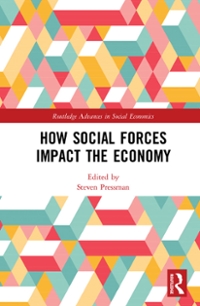Question
Argumentative Essay Do global economic and political integrations bring more harm to the Philippinesand the Filipinos ornot? Articulate your stance. Introduction - Make sure that
Argumentative Essay
Do global economic and political integrations bring more harm to the Philippinesand the Filipinos ornot? Articulate your stance.
Introduction - Make sure that yourlast statement is your thesis statement (This is your stance). Set it in bold letters.
Body 1 - Argument 1 (economic) of your thesis statement(present proofs and/or examples) - Your first sentence must be your topic sentence of the paragraph and it must support your STANCE.
Body 2 - Present your counterargument to argument 1 above(present proofs and/or examples)- Your first sentence must be your topic sentence of the paragraph and it must contradict the first statement of the earlier paragraph.
Body 3 - Argument 2 (economic) of your thesis statement(present proofs and/orexamples)-Your first sentence must be your topic sentence of the paragraph and it must support your STANCE.
Body 4 - Present your counterargument to argument 2 above(present proofs and/or examples) - Your first sentence must be your topic sentence of the paragraph and it must contradict the first statement of the earlier paragraph.
Body 5 - Argument 3 (political) of your thesis statement(present proofs and/or examples)
Your first sentence must be your topic sentence of the paragraph and it mustsupport your STANCE.
Body 6 - Present your counterargument to argument 3 above(present proofs and/or examples)-Your first sentence must be your topic sentence of the paragraph and it must contradict the first statement of the earlier paragraph.
Body 7 - Argument 4 (political) of your thesis statement(present proofs and/or examples)
Your first sentence must be your topic sentence of the paragraph and it mustsupport your STANCE.
Body 8 - Present your counterargument to argument 4 above(present proofs and/or examples)-Your first sentence must be your topic sentence of the paragraph and it must contradict the first statement of the earlier paragraph.
Conclusion
Here are some guide in argumentative essay that can help you
An argumentative essay is a type of essay that presents arguments about both sides of an issue. You should take a side and present arguments that support it and counter-arguments that opposes your arguments.
Do not take the neutral stance.
Outlining Your Paper
Argument essays are fairly straightforward in their organization. In your paper,you will need to do the following:
- Interest the reader (and that's me) in the situation.
- Explain the controversy or problem clearly.
- Explain the different sides of the debate.
- Tell them your side.
- Convince me that your side is the best one to take.
- Refute any objections I may be thinking about as I read.
- Urge me to adopt your point of view.
Introduction
Explain the subject, the controversy, and end with your thesis. Here are some tips:
- Use the title to present your point of view. The title is often your thesis statement or the question you are trying to answer.
- Be concise. You're only introducing your argument, not debating it.
- Think about me what aspects of this issue would most interest or convince me?
- Appeal to my emotions. Readers like me are more easily persuaded if they can empathize with your point of view.
- Present undeniable facts from highly regarded sources. This builds a lot of trust and generally indicates a solid argument.
- Make sure you have a clear thesis that answers the question. The thesis should state your position and is usually the last sentence of your introduction.
Body
The body is consists of six paragraphs, each presenting a separate piece of evidence that supports your thesis. Those reasons are thetopic sentencesfor each paragraph of your body. You should explain why your audience should agree with you. Make your argument even stronger by stating opposing points of view and refuting those points.
1. Reasons and support
- Usually, you will have three or more reasons why the reader should accept your position. These will be your topic sentences.
- Support each of these reasons with logic, examples, statistics, authorities, or anecdotes.
- To make your reasons seem plausible, connect them back to your position by using "if...then" reasoning.
2. Anticipate opposing positions and arguments.
- What objections will your readers have? Answer them with argument or evidence.
- What other positions do people take on this subject? What is your reason for rejecting these positions?
Conclusion
The conclusion in many ways mirrors the introduction. It summarizes your thesis statement and main arguments and tries to convince the reader that your argument is the best. It ties the whole piece together. Avoid presenting new facts or arguments.
Here are some conclusion ideas:
- Think "big picture." If you are arguing for policy changes, what are the implications of adopting (or not adopting) your ideas? How will they affect the reader (or the relevant group of people)?
- Present hypotheticals. Show what will happen if the reader adopts your ideas. Use real-life examples of how your ideas will work.
- Include a call to action. Inspire the reader to agree with your argument. Tell them what they need to think, do, feel, or believe.
- Appeal to the reader's emotions, morals, character, or logic..
Step by Step Solution
There are 3 Steps involved in it
Step: 1

Get Instant Access to Expert-Tailored Solutions
See step-by-step solutions with expert insights and AI powered tools for academic success
Step: 2

Step: 3

Ace Your Homework with AI
Get the answers you need in no time with our AI-driven, step-by-step assistance
Get Started


